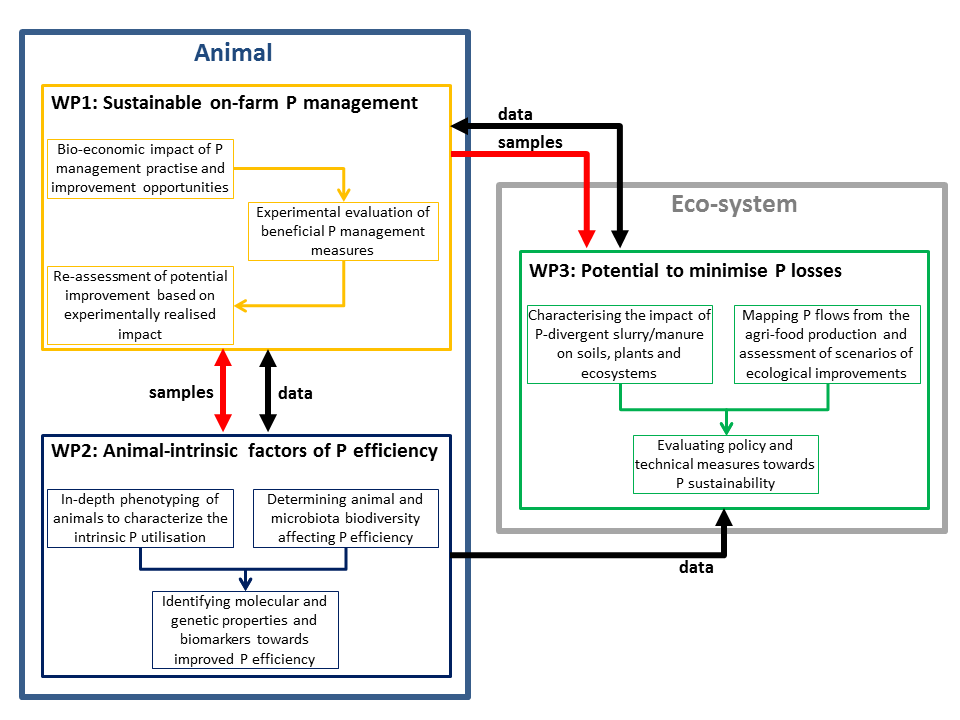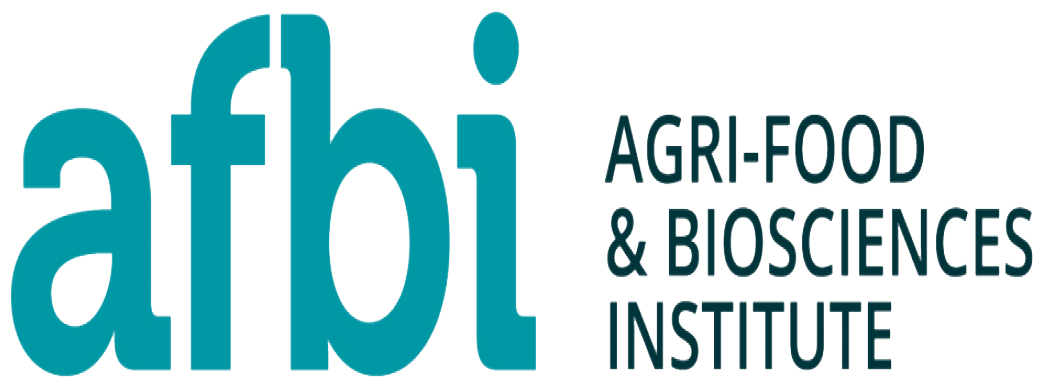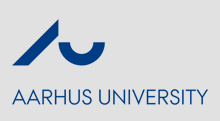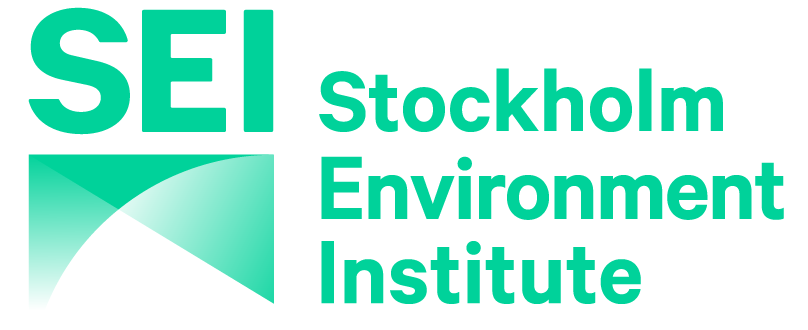Work package 1 – Sustainable on-farm P management
AimWP1 aims to assess different P management strategies at the animal-farm level to elucidate environmental and economic performances towards an improved P-utilisation and replacement of inorganic P supplements. Alternative P feeding regimes for pigs and poultry will be evaluated in terms of their benefits on P turn-over, mineral balance and capacity to improve the animal’s P retention rate considering animal health and welfare. The potential benefits of the tested alternative P management strategies covering feeding and breeding measures will be evaluated in terms of their overall farm economic and environmental performances.
Tasks- Bio-economic models for livestock farms
- Feeding strategies towards P efficiency
- Impact of P management systems
Work package 2 – Animal-intrinsic factors of P efficiency
AimWP2 provides an array of measures to determine the input and output of P at major stages of the P cycle with particular emphasis on animal production. Based on samples obtained from animal trials (WP1), animal-derived measures will be taken to characterise the genetic, physiological, and molecular factors driving an efficient P utilization. The animal and microbiota biodiversity affecting P-efficiency will be focussed.
Tasks- Animal-based mechanisms of P efficiency
- Biodiversity related to P efficiency
Work package 3 – Potential to minimize P losses
AimWP3 addresses how organic amendments from animal slurry applications (obtained from WP1) will influence the ability of e.g. grassland plants to retain and use P as well as how P fertilization will influence soil P availability. there is a strong focus on mapping P flows from agri-food production and assessment of scenarios of ecological improvements. Policy and technical measures towards P sustainability will be evaluated.
Tasks- The fate of P in ecosystems
- Policy and technical measures on P





